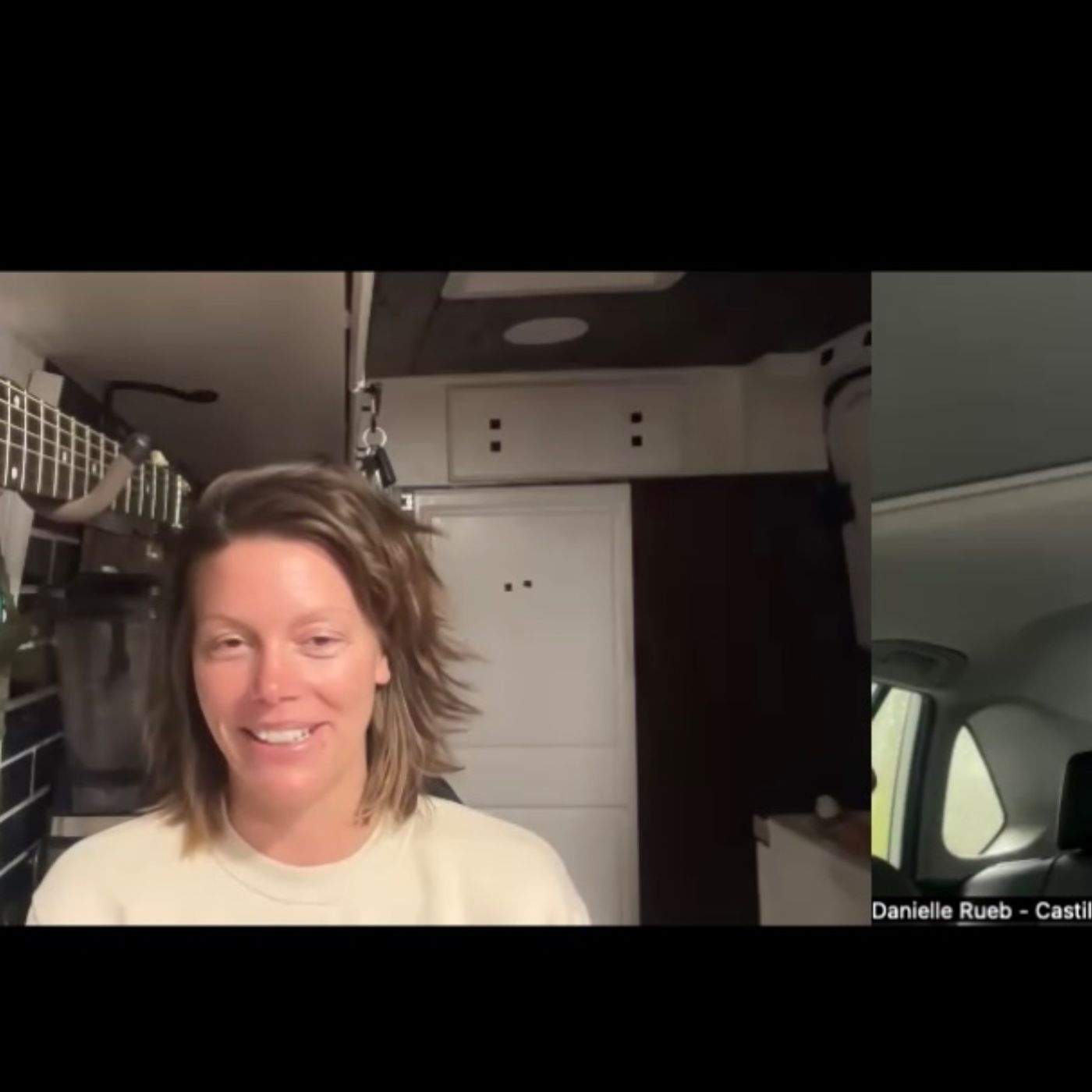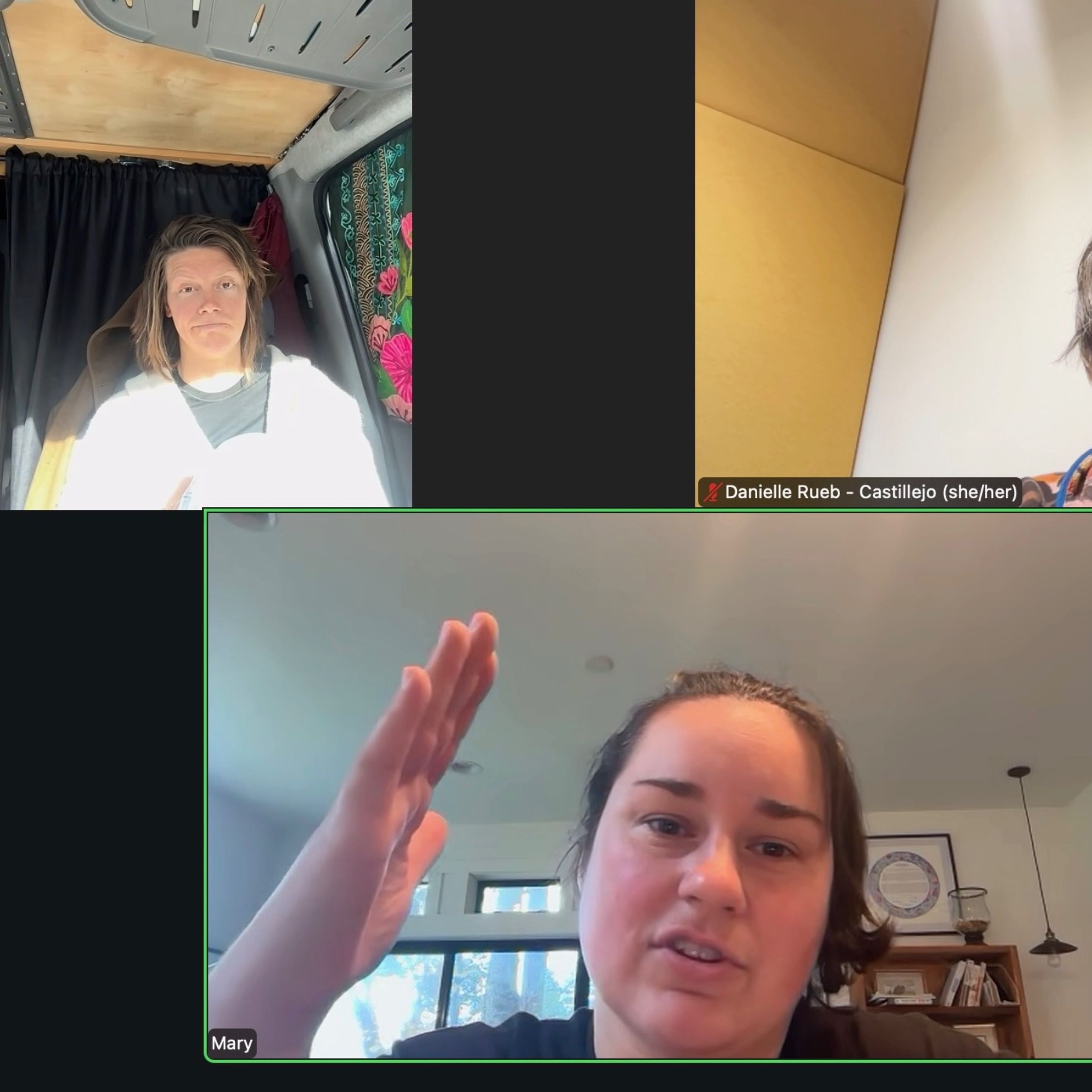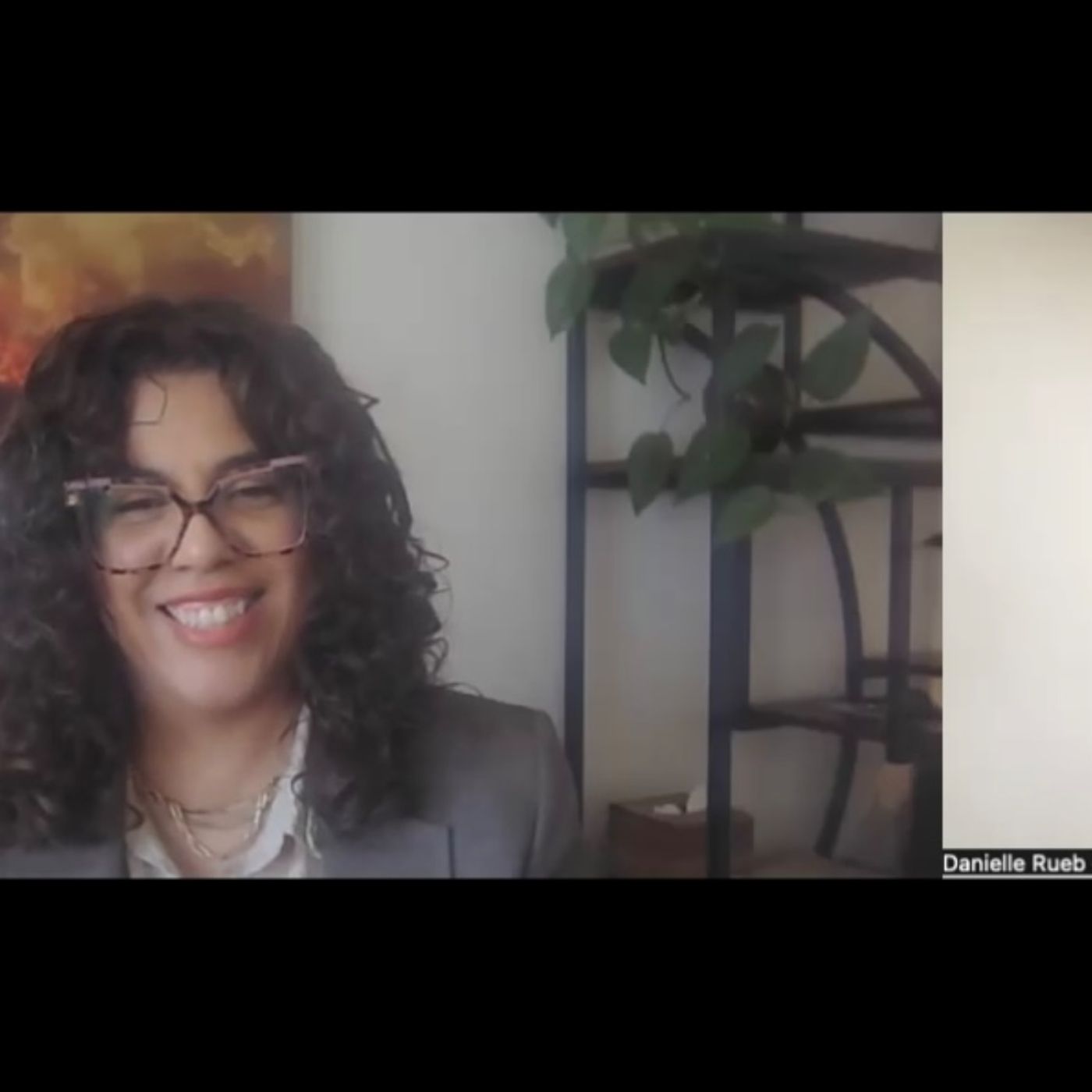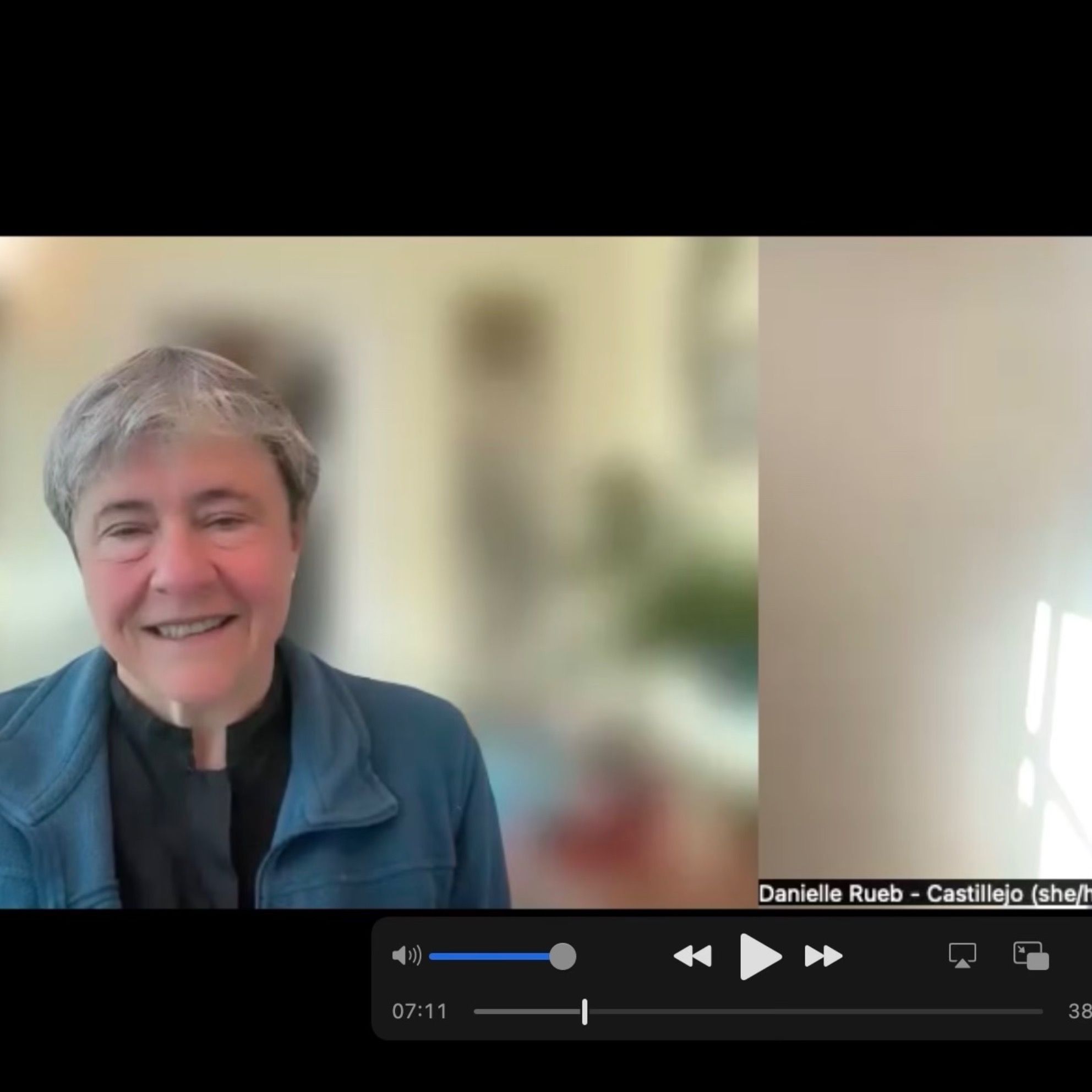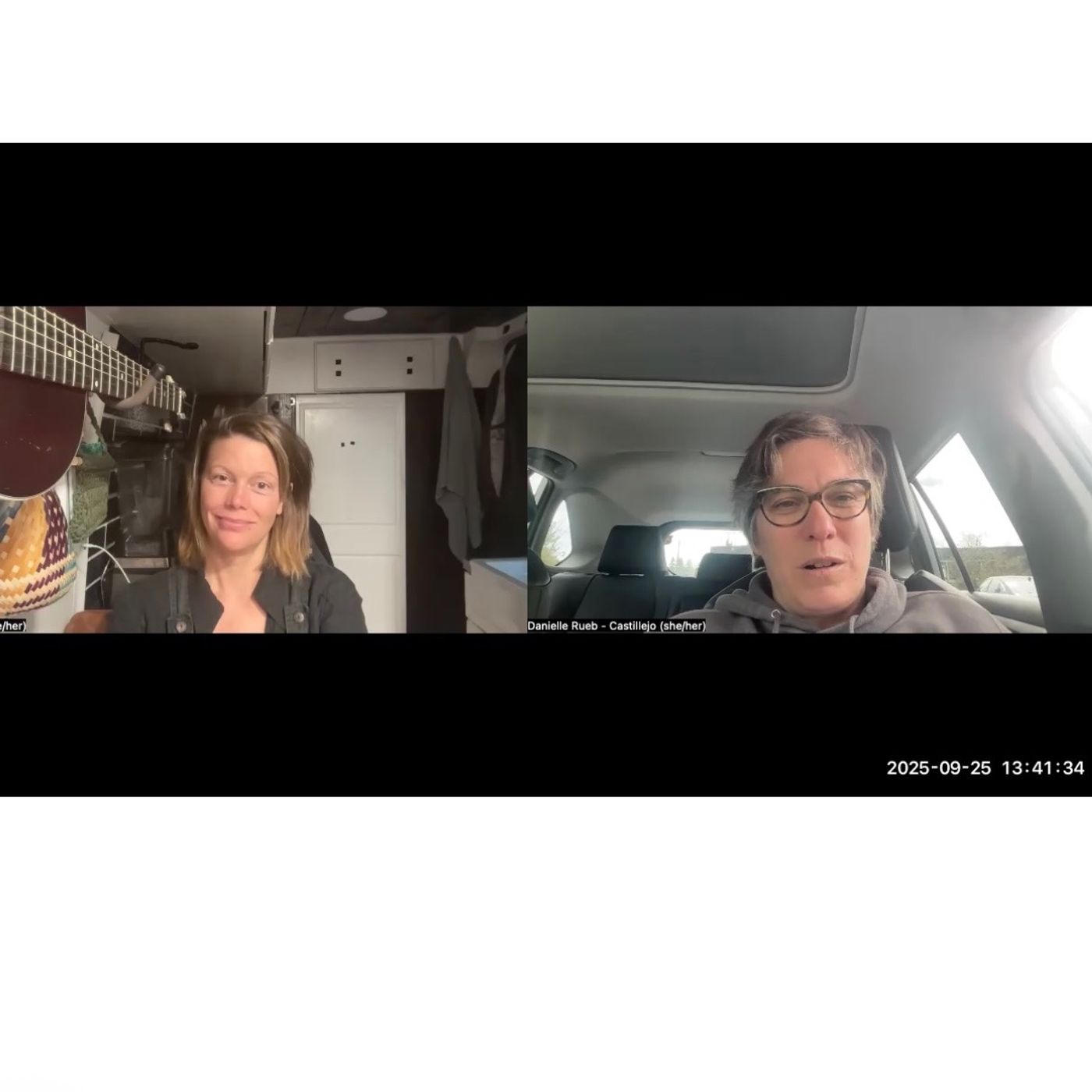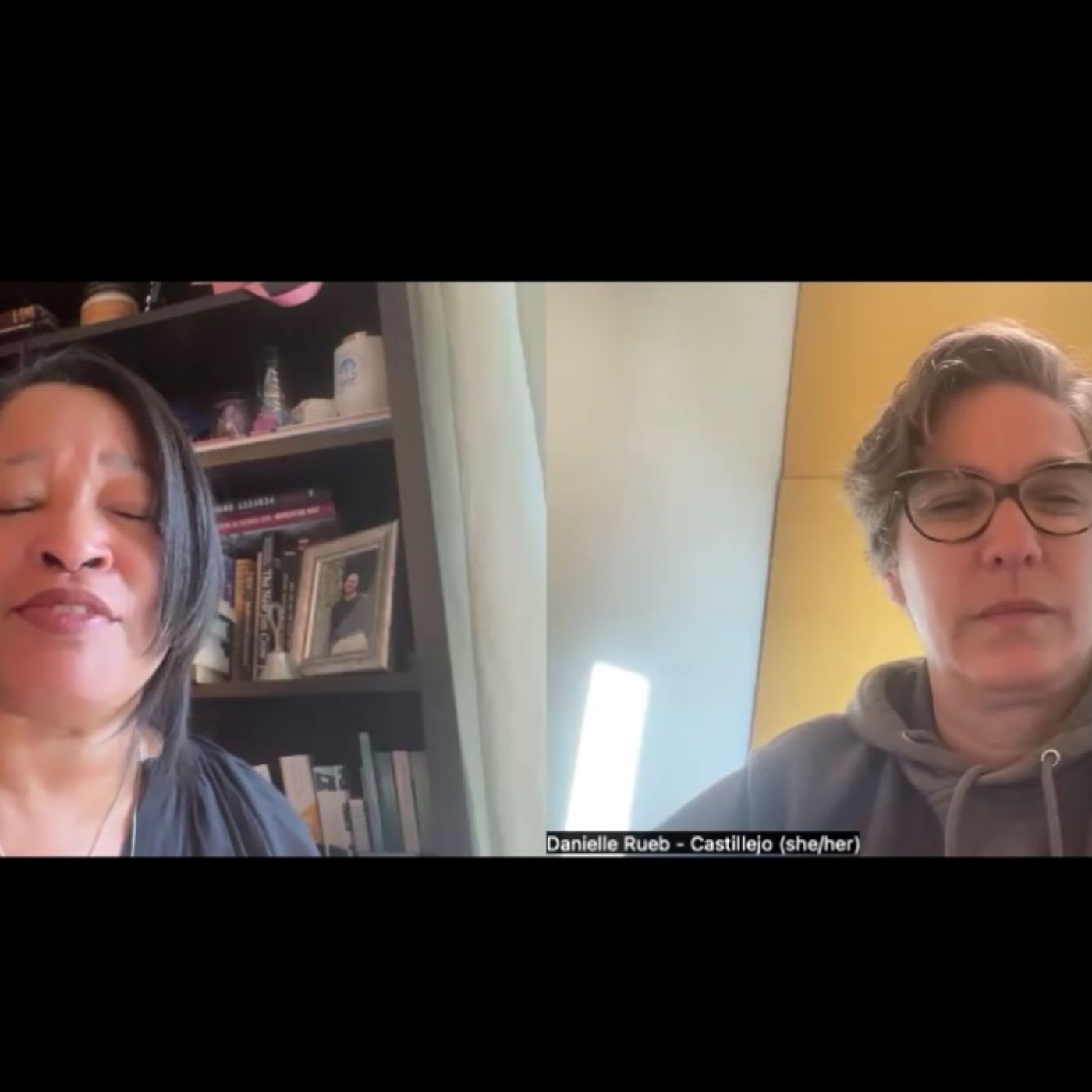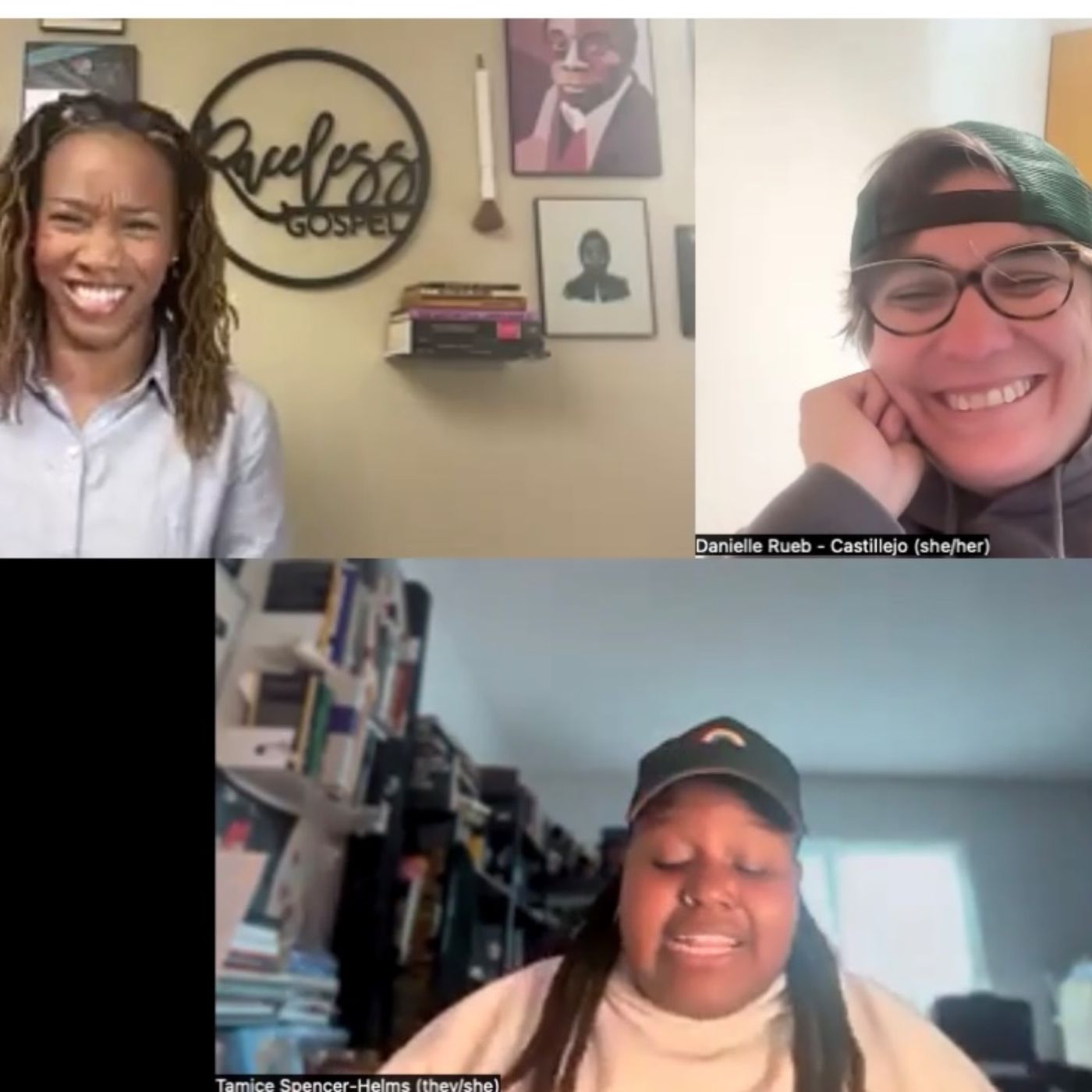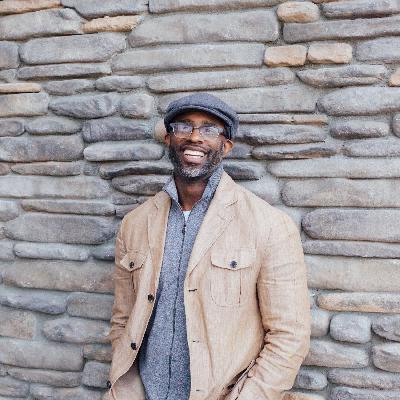Season 5, Episode 3: Anticipatory Intelligence and Anxiety with Rebecca Wheeler Walston
Description
Trigger Warning: Proceed only if you are comfortable with potentially sensitive topics.
This is not psychological advice, service, or prescriptive treatment for anxiety or depression. The content related to descriptions of depression, anxiety, or despair may be upsetting or triggering, but are clearly not exhaustive. If you should feel symptoms of depression and/or anxiety, please seek professional mental health services, or contact (in Kitsap County) Kitsap Mobile Crisis Team at 1-888-910-0416. The line is staffed by professionals who are trained to determine the level of crisis services needed. Depending on the need, this may include dispatching the KMHS Mobile Crisis Outreach Team for emergency assessment.
In the Words and Voice of Rebecca W. Walston:
Anticipatory intelligence is a phrase that I heard at a seminar talking about racial trauma. The speaker whose name I can't remember, was talking about this idea of a kind of intelligence that is often developed by marginalized people. And because this was a seminar on racial trauma in the United States, her examples were all primarily around racialized experiences as the United States understand that sense of racialized society. And so the idea of anticipatory intelligence is the amount of effort or energy that we put in emotionally, mentally, psychologically, to anticipating how our bodies and the stories that they represent will be received in a space that we are in before we get there.
Speaker 1 (00:18 ):
Welcome to the Arise podcast, conversations on faith, race, justice, gender, and spirituality. In this episode, I get to interview my dear friend, Rebecca Wheeler Walston, and we are talking about anticipatory intelligence. I think all of us, or at least most of the people I speak with lately when I'm like, how are you doing? They're like, and they're like, well, that's a complicated answer. And it definitely is. There's an underlying sense of unease, of discontent, of just a lack of surety, about what is going to come next in the new year that I think I haven't felt for a long time. The collective sense that I have right now as you listen to this episode and take a sneak peek into some of the conversations Rebecca and I have had for a while, I encourage you to be kind to your body Again. I've put in previous episodes, resources, get out, get mental health care, spend time with friends, play, go play pickleball, get out in the snow, read a good book, text a friend, call a friend.
(01:37 ):
Do the things that connect you back to life giving activities. Find your spiritual practices, light candles, take a bath. All these things that therapists often say are helpful. I mean, maybe it's you go hug a tree or put your feet, your literal bare feet in the dirt. I don't know what it is for you, but leaning on the people and the resources in your area and also leaning on things that connect you back to groundedness, to feeling in your body. And so those are the things that I do. I enjoy lately eating Honey Nut Cheerios. Sounds weird. I love Dry Honey Nut Cheerios. I don't know why, but I let myself indulge in that. So again, I'm not prescribing anything to anyone. This is not a prescription, a diagnosis, a treatment plan. It is saying, how can you find ways to ground yourself in really good healthy ways that you can actually care for your good body?
(02:50 ):
I don't enjoy talking about anxiety. I don't love it. In fact, talking about it sometimes I feel really anxious in the moment my heart starts pounding, I get sweaty hands, et cetera. And yet there is something grounding for me about stepping into shared realities with my friends or neighbor, colleague or family. And so this is a reality that Rebecca and I have been talking about. What is anticipatory intelligence? And I'm going to let her jump in and start it off here. Hey, Rebecca, I know you and I chat a lot, and part of our talks are like, Hey, how you doing? Hey, how am I doing? And a while back when I reached out to you and said, Hey, let's do this thing way before the election on anxiety and race. And you're like, wait a minute. I want to talk about this thing called anticipatory intelligence. And so I want to hear about that from you. What is that?
Speaker 2 (03:51 ):
Hey, Danielle, as always, Hey, hey,
(03:56 ):
Post 2024 election, I'm going to just take a huge breath and say that I've had this low grade sort of nausea in my gut for at least a week, if not longer. So yeah, let's talk. So anticipatory intelligence is a phrase that I heard at a seminar talking about racial trauma. The speaker whose name I can't remember, was talking about this idea of a kind of intelligence that is often developed by marginalized people. And because this was a seminar on racial trauma in the United States, her examples were all primarily around racialized experiences as the United States understand that sense of racialized society. And so the idea of anticipatory intelligence is the amount of effort or energy that we put in emotionally, mentally, psychologically, to anticipating how our bodies and the stories that they represent will be received in a space that we are in before we get there.
(05:23 ):
So it's that notion of I'm a black woman, I'm getting ready to go to a function that I anticipate will likely be predominantly white. And the kind of internal conversation I have with myself about what that's going to feel like look like to enter the question in my mind of how safe or how dangerous might the environment be to me racially? So the first piece of anticipatory intelligence is that sort of internal conversation that we may be having with ourselves as we step into a circumstance. The second piece of that is when we arrive in the space and we start to read the room,
(06:12 ):
Read the faces of the people in the room, and this work of how close was my hypothesis or my theory about my reception in the room to what I'm actually seeing and feeling and hearing in the room as I enter the space is that sort of second piece of anticipatory intelligence. And then the third piece of it is really this question of how do I navigate that answers to those first two questions? And so what is my body, my brain, my emotions, my spirit, my gut, all of it doing with what I'm reading of the faces in the room and the reaction to me being there could be a positive space. I could get there and realize that the people in the room are all receptive to my presence and what I'm reading and feeling is a sense of welcome and warmth and an invitation for all of me to be in the room. And then what does that feel like in terms of the letdown of anxiety and the ability to absorb that sense of welcome and to participate in that sense of welcome? Or it could be a hostile environment. And what I'm reading is something that isn't welcome,
(07:44 ):
Something that feels like fill in the blank, resentment, who knows?
(07:53 ):
And then what does my body do with that? What does my gut do with that? What does my emotions, what does my spirit do? And how do I react and respond to what I'm actually reading in the room? So you can hear that sense of three steps, and sometimes that can happen over a matter of days, weeks as we build up to something. Sometimes that can happen in a matter of seconds as we enter a room, but the amount of effort and energy that is expended and the idea that you can actually develop a very well thought through grid for this as a kind of intelligence that can be yours individually might belong to your group. Collectively idea of how we anticipate and then how we engage a space based on and in this race, it could be extended to gender,
Speaker 3 (08:58 ):
Religion
Speaker 2 (09:00 ):
In this day and age, probably politics and any other places where we find intersectionality of the pieces of our identity.
Speaker 1 (09:11 ):
I had to take a deep breath because it is this giant reframing and pathologizing of what a lot of us walk around with, which is an internal disruption as we move from space to space.
Speaker 2 (09:29 ):
Yeah, I think that's true. And I mean, I think about it as a black woman, as a black mother raising two kids, I have taught my kids this notion of, I didn't call it that there's too many syllables and SAT words, but I have taught my kids a sense of pay attention to people and places and sounds and vibes and nonverbal communication and verbal communication and learn to interpret and decipher and then do what is necessary to keep yourself safe and do what is necessary to enjoy and participate in places where you're actually welcome.
Speaker 1 (10:17 ):
When that intersects with the concepts of Western psychology, let's say, where we're as a part of that system, there's this constant move to how do we heal anxiety, how do we work towards calm? How do we work towards finding a quote safe space? And I think it's becoming more and more evident in our current society. It's evident to many before, but I think some people are jostled into the reality that there might not be that safe space or you might have to understand anxiety differently than the western psychological framework. Have you thought about that?
Speaker 2 (11:04 ):
Yeah. I mean, couple of things, right? Is that in western sort of psychological space, the phrase that's usually engaged is something called hypervigilant. This idea that the time you spend reading a room and your sense of threat and the need to be vigilant about your own safety, the concept of hypervigilance is to say that you're overreacting
Speaker 3 (11:36 ):
To
Speaker 2 (11:37 ):
The space and you have a kind of vigilance that is unnecessary. You have a kind of vigilance that is a trigger to some threat that doesn't actually exist. And therefore you


